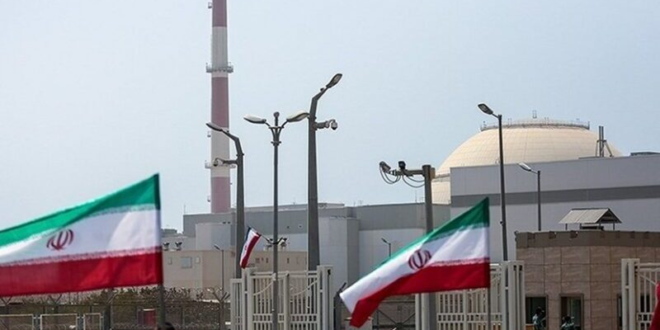US President Donald Trump surprised almost everyone when he announced in an Oval Office briefing — with Israeli Prime Minister Benjamin Netanyahu sitting right beside him — that high-level direct talks on Iran’s nuclear program were scheduled for April 12 in Oman.
It is unclear whether Iran wanted to keep it quiet, but Foreign Minister Abbas Araqchi felt the immediate need to clarify in the middle of the night Tehran time that talks would be indirect, contrary to what Trump had said.
Regardless of the format, both sides have framed the rendezvous as an exploratory meeting to see if negotiations can be held.
But beneath the headlines lies a deeper strategic debate: What exactly should the United States demand from Iran’s nuclear program — tight oversight or total dismantlement?
Trump has been clear about what Washington’s end-goal is: Iran can never be allowed to have a nuclear weapon. What he hasn’t explicitly talked about is whether that means imposing restrictions on Iran’s nuclear program or completely dismantling it.
Instead, senior members of his administration have been doing the talking, but they’ve been sending contradictory messages.
Steve Witkoff, Trump’s Middle East envoy who will be leading the US delegation in the Oman talks, said last month that Washington wants to “create a verification program so that nobody worries about weaponization of [Iran’s] nuclear material.”
The implication was that the United States wants to curb enrichment and establish an oversight mechanism to ensure Iran’s nuclear program remains peaceful — something that Iran claims has always been its intention.
But national-security adviser Mike Waltz struck a different chord days later, charging that the administration wants “full dismantlement,” adding, “Iran has to give up its program in a way that the entire world can see.”
What Should The US Aim For?
Proponents of full dismantlement of the nuclear program say it is the only surefire way to ensure Iran won’t ever acquire nukes.
Behnam Taleblu, senior director of the Iran program at the Washington-based Foundation for Defense of Democracies (FDD), argues Trump should not entertain arms control.
“Rather than seeking to limit Iran’s atomic program, it should be forced to junk it altogether,” Taleblu told RFE/RL.
He conceded that going for dismantlement is “high risk” but argued it is achievable and necessary through pressure such as stepping up sanctions and holding joint military drills with Israel.
Indeed, the US Treasury on April 9 announced sanctions on five entities and one person based in Iran for their support of Iran’s nuclear program, including the Atomic Energy Organization of Iran (AEOI).
And if talks are futile, Taleblu said, Trump should be ready to walk away.
“The Islamic republic will only seriously consider surrender if it knows America has a credible exit option,” he added.
A major supporter of the complete dismantlement of Iran’s nuclear program is Netanyahu, who has floated the idea of a “Libya-style agreement,” which Tehran has long rejected.
Others argue that any demand for Iran to fully dismantle the program would be seen in Tehran as political suicide.
“US demands for full dismantlement or a ‘Libya-style’ deal that involves Iran breaking apart its entire nuclear program would be a nonstarter for Tehran,” said Gregory Brew, senior Iran analyst at the New York-based Eurasia Group.
He argued that aiming for implementing a verification scheme to keep Iran’s nuclear program in check “would, at the very least, provide a basis for further discussions.”
But if Washington is intent on tearing down Iran’s nuclear program, “talks will be over fast, and the risk of military escalation will go up,” Brew added.
Is Iran Ready To Risk War?
The 2015 nuclear deal, which Trump withdrew from in 2018, formally expires in October. With it gone, the UN Security Council (UNSC) will lose the power to reimpose sanctions on Iran.
So, the West is running out of both time and patience.
Trump has warned Iran that it will bomb it if no agreement is reached. France, also a permanent member of the UNSC and a signatory to the 2015 deal, has expressed concern that the absence of a new agreement would make the prospect of military confrontation “almost inevitable.”
The United States has been flexing its muscles and beefing up its military presence in the region. It has been launching air strikes against the Iran-backed Huthi rebels for weeks, using some of its most sophisticated hardware against a group that does not even have an air force to speak of.
“The deployments offer the United States a credible military threat that can serve to put more pressure on Iran,” Brew said. “The United States is clearly signaling that it is prepared to escalate if talks fail or if Iran advances its nuclear program to weaponization.”
The stakes for the regime are very high, he added.
But Taleblu believes the Islamic republic is ultimately risk-averse and won’t want to risk a military confrontation.
“There are instances in history, admittedly not many, where the regime has significantly backtracked on a stated security goal it sunk significant capital into,” he asserted. “In instances where Tehran senses strength and a willingness to grow penalties and impose costs over time that could meaningfully threaten the regime, it has backed down.”
The stage is set for diplomacy in Oman. As the clock ticks, the question is who will blink first.
 Eurasia Press & News
Eurasia Press & News




